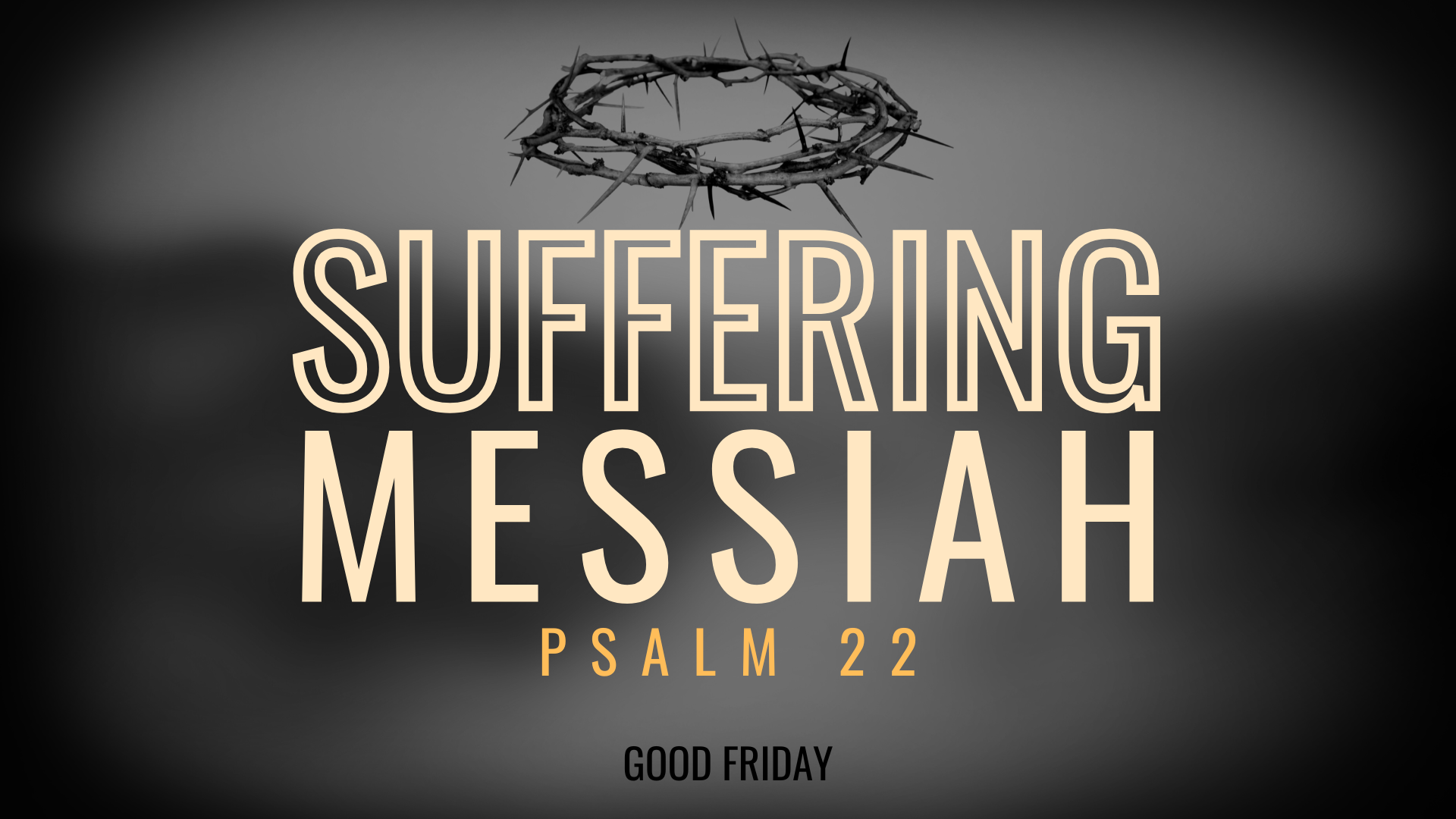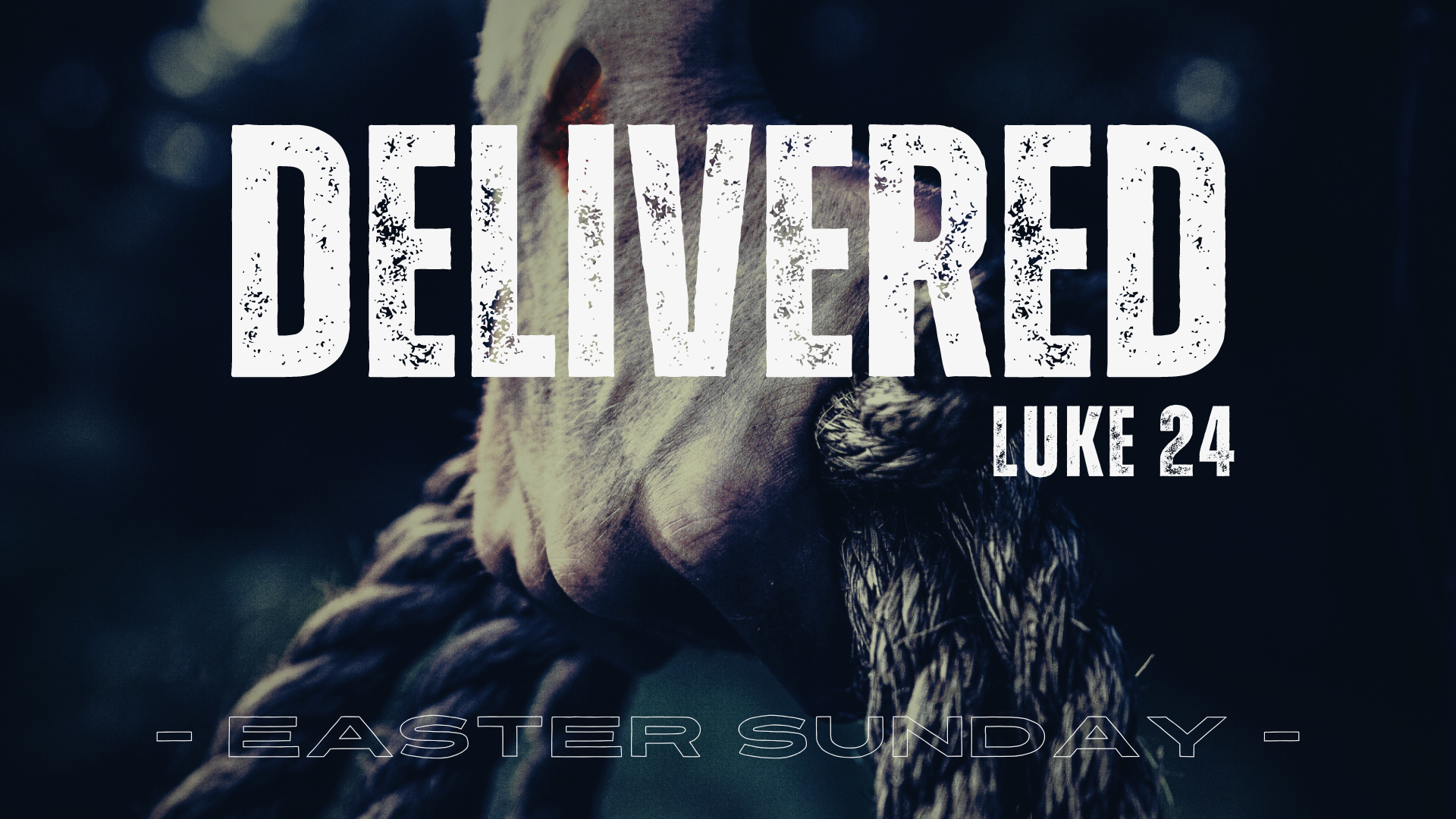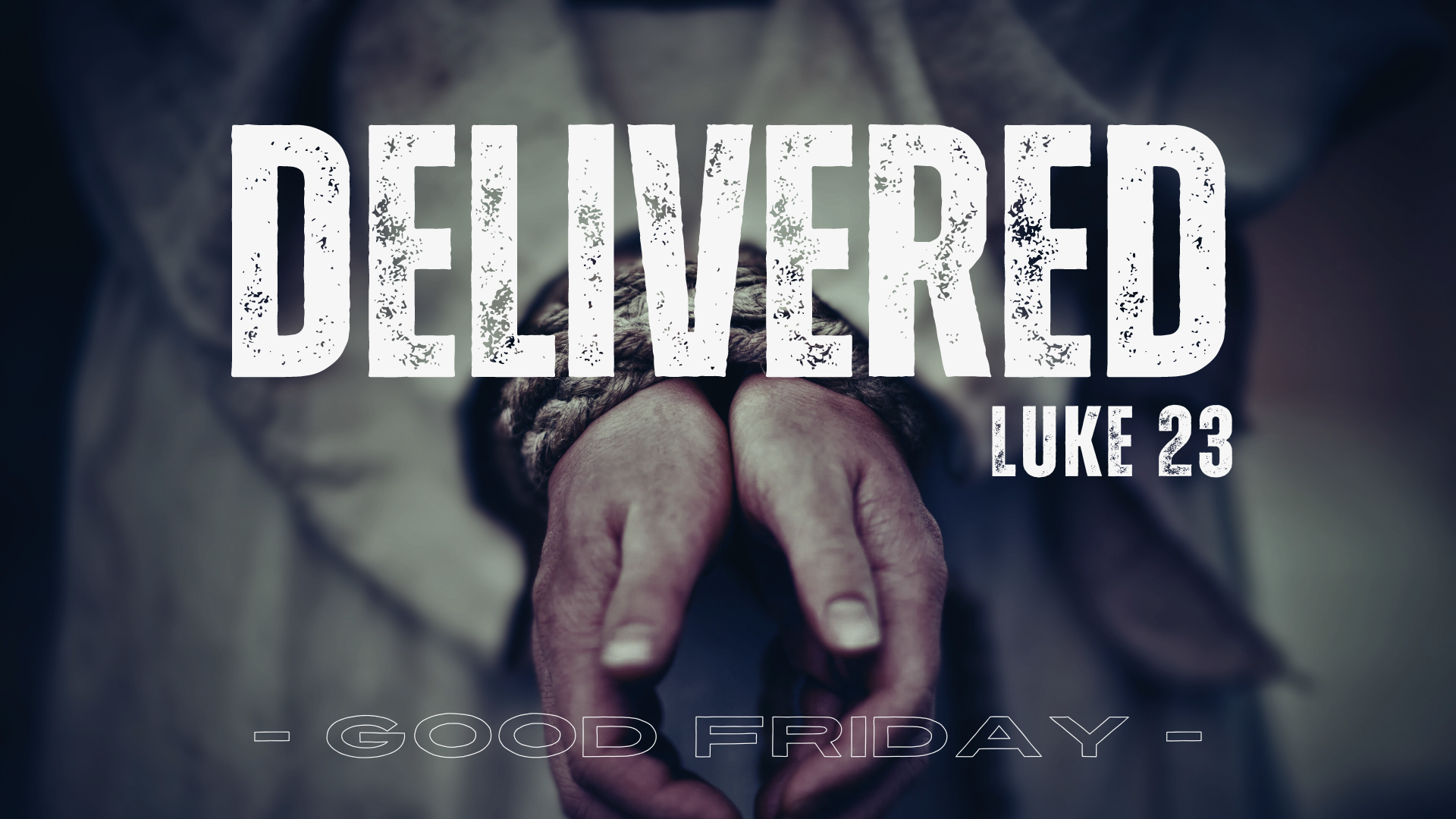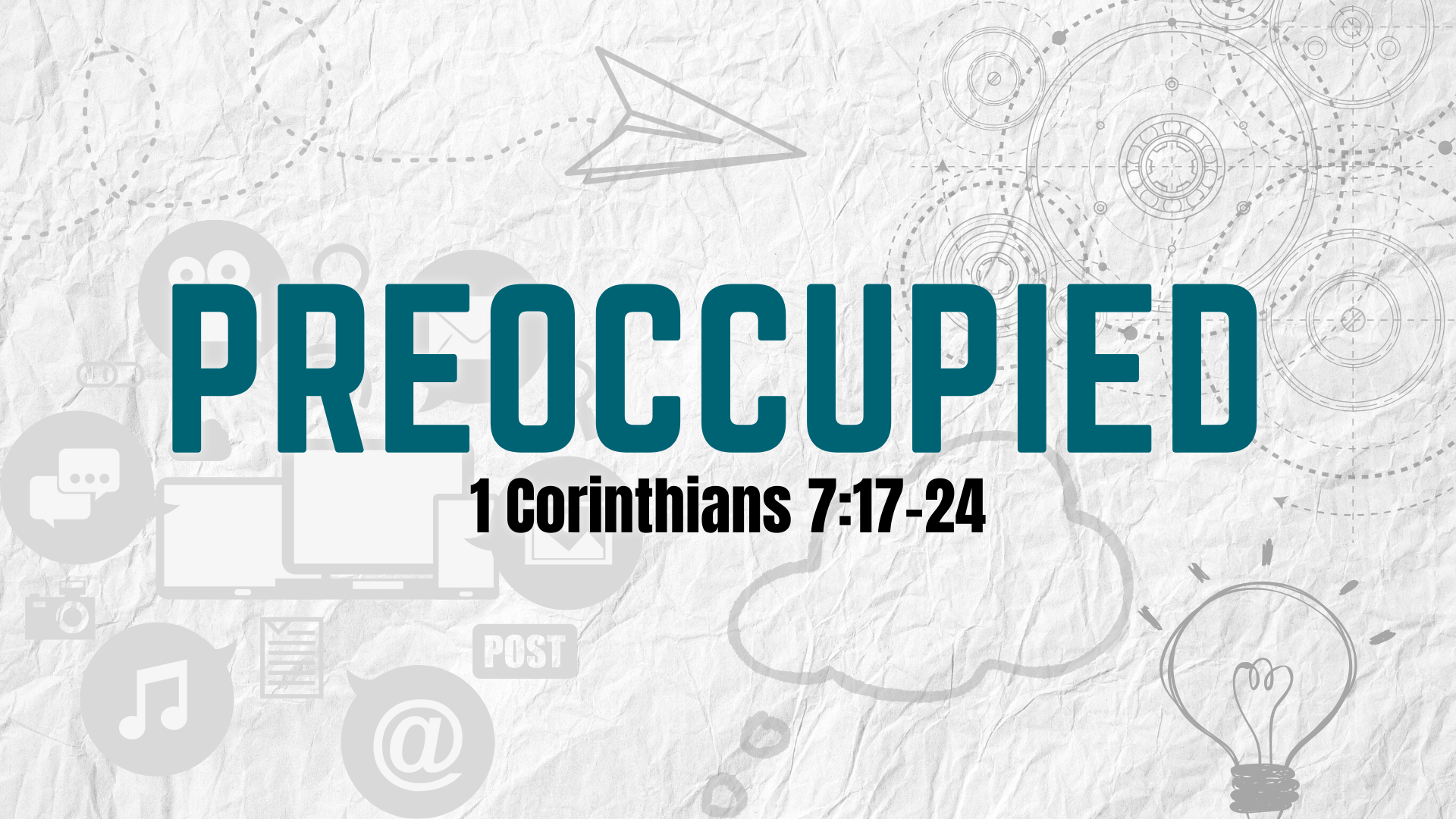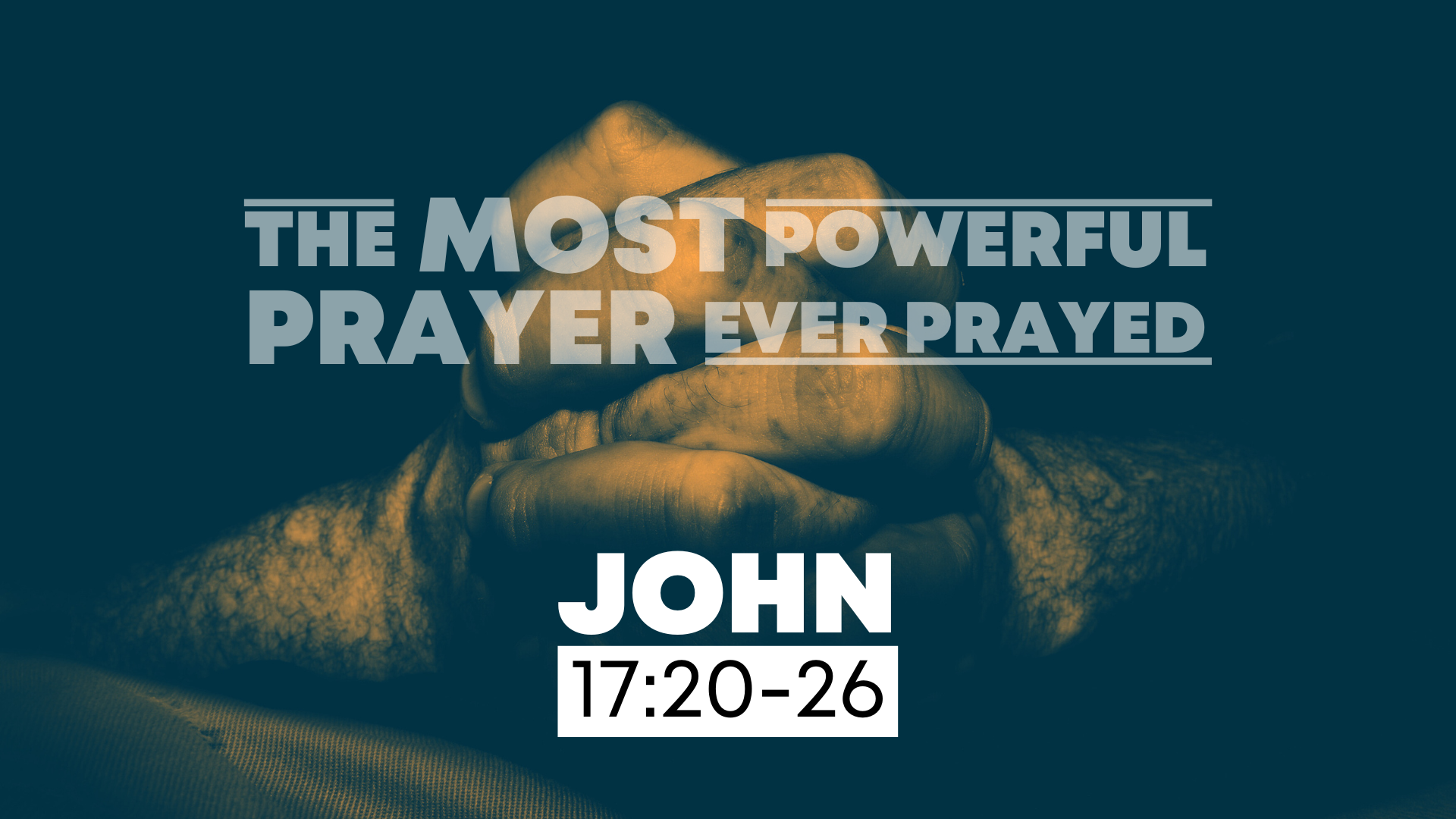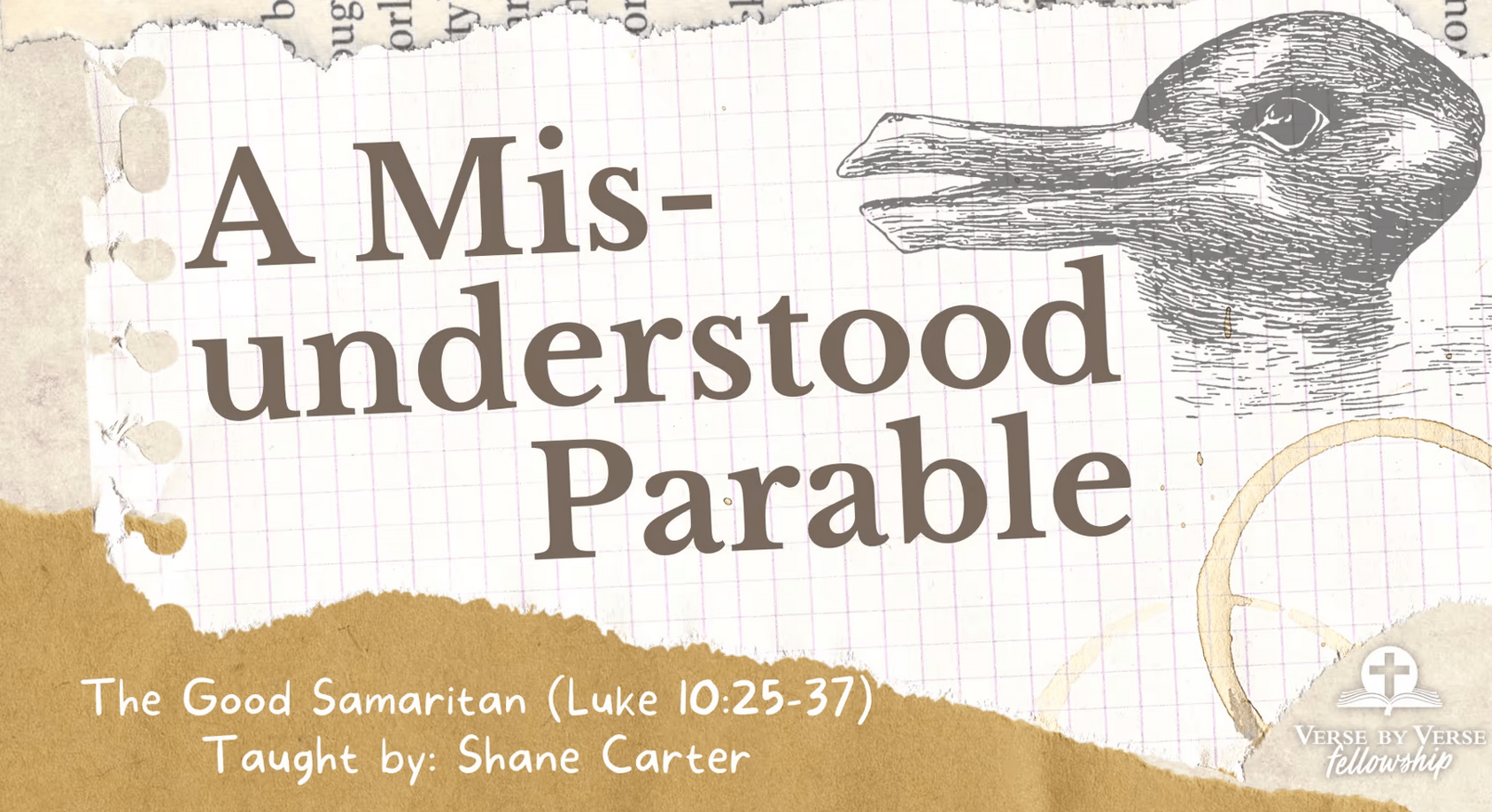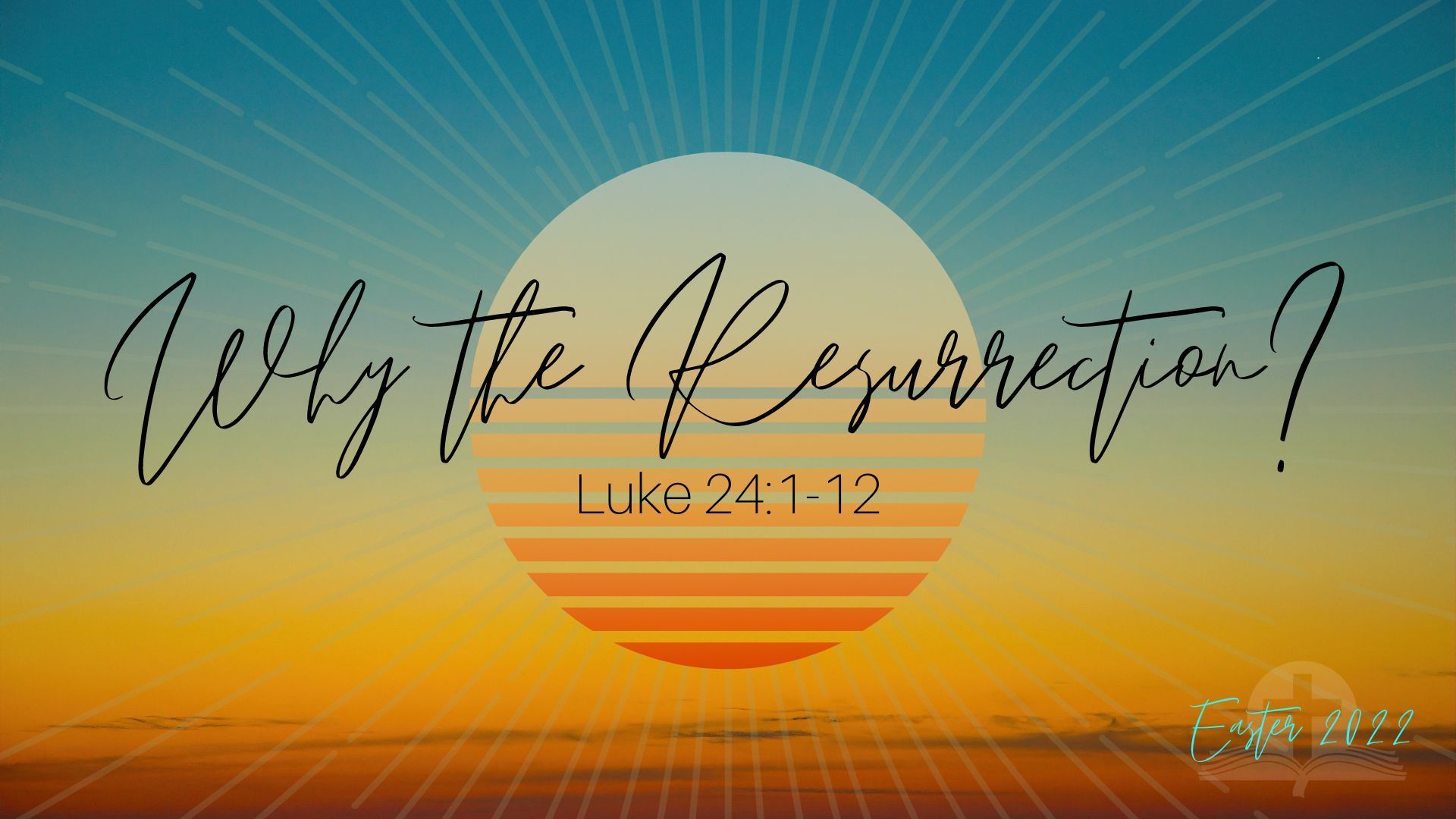MANUSCRIPT
Have you ever seen someone do something they were made to do? Like Michael Jordan effortlessly sinking shots on the basketball court. Or Serena Williams crushing her opponent in a tennis match. YoYo Ma playing Bach’s cello suite no. 1.
Maybe your mind goes to our country’s history. To George Washington, who was universally agreed upon to be THE man needed to lead the country as its first president.
You’ve probably had that feeling of awe, watching someone perform some incredible feat in the Olympics. But have you ever asked yourself what you were made to do?
I remember struggling with this question as a young man trying to pick a career path. Trying to figure out where my passion and my skills intersected. What were you made to do? What were you made to do?
Maybe you were made to work your job. Or play pickup basketball. Or build homes. Or mother children. Or share the gospel. Or eat good food.
I think we’re all kinda made to eat good food, amen?
Well, however you respond to the question of your purpose, my goal this morning is to show you that the answer to that question lies in Jesus Christ.
Let’s start by asking God for help.
If you haven’t already, turn with me in your Bibles to Ephesians chapter 2.
Let’s read verses 1-3
Ephesians 2:1–3 (ESV)
1And you were dead in the trespasses and sins
2in which you once walked, following the course of this world, following the prince of the power of the air, the spirit that is now at work in the sons of disobedience—
3among whom we all once lived in the passions of our flesh, carrying out the desires of the body and the mind, and were by nature children of wrath, like the rest of mankind.
The word that Paul uses to describe those who don’t know Christ is dead. No flicker of life. No faint pulse. A cold, dead, motionless thing.He doesn’t liken them to a cup that needs to be filled or a battery that needs to be charged. There is no hope for those in this state. And yet - look at verse 2.
“Dead in the trespasses and sins in which you once walked”
This just got a lot scarier - not only were these people dead, but also somehow they were alive. They were undead. Dead men walking. The only category we have for this is zombies, right? You’re probably all aware of this type of fictional monster. It’s someone who died and came back to life in a way that is different from life. Sometimes they’re called “undead” because they’re not really alive, but they’re not really dead. Their bodies move around, but they don’t think or feel.
That’s not far off from what Paul is describing here. Those being described in verses 1 and 2 live in physical bodies but are dead spiritually. He’s referring to spiritual deadness. Paul understands that our physical bodies will die, and if our spirits are already dead - he’s right in referring to us as fully dead. Not that our spirits are literally dead. But that they’re “living out of fellowship with God”.
Here’s another way to think about it: Have you ever heard someone say “you’re dead to me”... What do they mean by that? They’re proclaiming that there is no affection or desire to please that person.
That’s an accurate description of the spirit that is dead to God. They’re dead in sin.
And we likewise are dead in sin without Christ.
That’s our first point this morning.
You are dead (in sin) without Christ.
They’re physical bodies still move, but their spirits are dead and cold towards God.
Look at what else Paul says in verse 2 about these people.
He says:
Ephesians 2:2 (ESV)
2in which you once walked, following the course of this world, following the prince of the power of the air, the spirit that is now at work in the sons of disobedience—
Not only do they lack any affection or deference to God.
Paul says that these people are following “the course of this world”. I think about a train or a rollercoaster here. It’s following a course that’s laid out for it. The world has laid down miles of track for those who want to pursue the passions of the flesh. You want to pursue passions of the flesh? You want to run after sin? The world has made it easy for you by laying out a course.
And the engineer of all those miles of track is the prince of the power of the air. That’s an interesting title. If you’ve been around church for a while, you probably at least guess that this is a reference to Satan. You’ve got a lot of context clues. But it’s interesting to note that this is the only place where this title is specifically used.
In other scriptures, Satan is referred to as the “ruler of this world” or the “god of this world” or just simply “the evil one”. He’s the enemy. The one who hates God hates mankind and will do anything to dishonor God. Whether by destroying or abusing God’s image, or directing behavior that is contrary to God’s desire. And this is who is at work in people who are not God’s children.
He’s at work in the sons of disobedience, which is a euphemism for those who disobey God. He’s influencing those who are dead to God to carry out the passions of the body and the mind.
This influence is subtle and goes mostly unnoticed. In fact, the sons of disobedience probably don’t have a clue that someone is guiding them with the power of suggestion. Paul is describing a unity between spirit and body here. There’s a synergistic quality to the way these people pursued sin.
Their spirits, which were dead to God, were in the driver’s seat, and their bodies were happy to carry out the desires of their flesh. There’s an unholy harmony between body and spirit. No discord.
Does that sound amazing? Doesn’t that sound like the highest form of self-actualization? Do you do what you most want with no restrictions? Your spirit and your body working together to carry out what YOU want?
That’s what you hear from our culture. That’s what you hear from modern psychology. And yet, more than ever, people are unhappy. People are looking for fulfillment, and they’re being told, “Do what makes you happy!” And yet people are still unhappy.
There’s more confusion now about how we’re supposed to live than there ever has been.
This is a fundamental problem for us. We’re trying to fill the hole inside of us by doing what we most want. We make ourselves gods that need to be served.
Paul says this impulse is deep inside us.
Look at verse 3
Ephesians 2:3 (ESV)
3among whom we all once lived in the passions of our flesh, carrying out the desires of the body and the mind, and were by nature [we were] children of wrath, like the rest of mankind.
By nature, children of wrath, like the rest of mankind. That phrase children of wrath might be a little strange-sounding. It’s meant to convey that just like we received all our genetic material from our parents, we also received an instinctual predisposition to sin. And that makes us the rightful recipients of God’s wrath. We are owed God’s wrath due to our preference of sin over God.
That’s our natural state. We deserve the judgment and wrath because we shake our fists at the creator.
You might say, “How can we be blamed for something that’s natural to us? It’s like blaming a skunk for smelling bad.” You’re right! But unlike a skunk, we make moral choices. A skunk doesn’t choose to stink. But we choose to sin.
Paul makes this clear for us in Romans 1:29-32. In these verses, he’s talking about those who are, by nature, children of wrath.
Romans 1:29–32 says
Romans 1:29–32 (ESV)
29They were filled with all manner of unrighteousness, evil, covetousness, malice. They are full of envy, murder, strife, deceit, maliciousness. They are gossips,
30slanderers, haters of God, insolent, haughty, boastful, inventors of evil, disobedient to parents,
31foolish, faithless, heartless, ruthless.
32Though they know God’s righteous decree that those who practice such things deserve to die, they not only do them but give approval to those who practice them.
So these are conscious choices being made by those who practice and approve such things. Do you see that?
It’s our nature, but it’s also our choice. So what do we do with these verses? Well, the way we engage with these verses will change depending on how we relate to Christ.
For those of you who were saved later in life, do you remember your life without Christ?
For those who can’t remember a time before trusting in Christ, based on even the sin struggles that you have now, can you picture what your life would be like with him? You have great reason to rejoice when you read these verses! This is what you have been saved from.
For those who don’t trust in Christ, if you don’t know him. These verses describe you. You see, verses 1-3 are all written in the past tense. Paul is describing people before they came to know and love Christ. But I wonder if these verses apply to you in the present tense. Are you currently dead in sin? Presently following the course of the world? Characterized by obeying the passions of your flesh?
If that’s you, I have a burden to tell you that Jesus offers you life in Him. You can receive a new spirit and be alive with Christ. Trust in Jesus’ death on the cross to pay for your sins. If you don’t know God, this moment, right now, he’s willing to make you his child. There’s no wall of sin that’s too high or too thick that would keep Him from saving you. There’s nothing you’ve done that’s too heavy for God to bear. Trust in him.
When you trust in him, these next verses describe what happens.
Let’s read verses 4–6
Ephesians 2:4–6 (ESV)
4But God, being rich in mercy, because of the great love with which he loved us,
5even when we were dead in our trespasses, made us alive together with Christ—by grace you have been saved—
6and raised us up with him and seated us with him in the heavenly places in Christ Jesus,
This is good news, amen? We serve a God who is rich in mercy. He shows compassion to those who are in dire need. Those who are downcast, ruined, hopeless, and destitute. And he loves those people, even before they are able to love him in return. That’s what verse 5 is saying here “even when we were dead in our sins…”, God loved us even then!
Romans 5:8 echoes this for us.
Romans 5:8 (ESV)
8but God shows his love for us in that while we were still sinners, Christ died for us.
If you’ve ever wondered what someone means when they say “Jesus loves you”, this is it! His love for you is so great that he would set aside equality with his father and the holy spirit in order to become a man and die without sin to save YOU.
Despite our deadness and to spite our deadness, he makes us alive with Christ.
You can be alive with Christ by grace.
That’s our second point.
You can be alive with Christ by grace.
I want to emphasize the word “grace” there because we couldn’t be saved without it.
Paul is really interested in this concept of God’s grace.
Look again at verse 5
Ephesians 2:5 (ESV)
5even when we were dead in our trespasses, made us alive together with Christ—by grace you have been saved—
He mentions grace as a parenthetical here. It’s like he’s so excited about it, he can’t wait to mention it. He returns to it later, but his fascination with grace should make us ask: What’s the big deal about grace?
I wonder if we’ve actually thought about the meaning of grace recently. We know what it means, but it also means nothing to us. I just want to point out how unique the element of grace is in Christianity.
Let me first give you a definition of grace. Grace is favor and kindness shown to those fully undeserving of that favor. Grace is the free and sovereign work of God to do for us what we cannot do for ourselves, even though we don’t deserve it.
Christianity is distinct from other religions in that our salvation is through grace alone. While other religions focus on concepts such as “law” or “ritual”, Christianity’s key word is “grace”. Other religions require perfect conformity and leave people hoping they’re doing enough. Christianity tells you you’ll never do enough, but Jesus has done it all on your behalf. He did the work that you couldn’t do so that you could live the life you don’t deserve.
There’s a song called Made Alive by the band Citizens that expresses this so well.
It says:
You have bought me back with the riches of
Your amazing grace and relentless love
I'm made alive forever
With you, life forever
By Your grace, I'm saved
His grace saves us, and then look what happens next.
In Verse 6, Paul says that Jesus
Ephesians 2:6 (ESV)
6and raised us up with him and seated us with him in the heavenly places in Christ Jesus,
We’re saved and then we’re raised up with Christ, and seated with Christ.
Take a look at Revelation 3:21, It parallels so perfectly.
Revelation 3:21 (ESV)
21The one who conquers, I will grant him to sit with me on my throne, as I also conquered and sat down with my Father on his throne.
When Jesus says “the one who conquers”, he’s referring to believers. Do you see the harmony here with our text this morning?
Jesus is echoing Paul’s words in Ephesians, saying, “You will sit with me on my throne”.
Jesus Christ will share honor and authority with those who follow him. We’re not merely saved, we also have so much to look forward to in the coming ages.
Paul refers to these coming ages in verse 7. He says
Ephesians 2:7 (ESV)
7so that in the coming ages he might show the immeasurable riches of his grace in kindness toward us in Christ Jesus.
We are saved by grace, raised with him, seated with him on his throne in heaven, and it’s then that we’ll truly understand the immeasurable riches of his grace.
Who here has been to the Grand Canyon? I took a trip with my family when I was younger to the Grand Canyon, and we hiked part of the way down into it one day. When you’re in the Grand Canyon, you know it’s big, and when you’re at the rim, you can tell it’s really big. But when you get really high up, you can really appreciate its size.
The same is true with our unworthiness. The only vantage point high enough to fully appreciate it is Christ’s throne. The square footage of our hopelessness is so large that you can only really appreciate it from his throne. Only when you’re seated next to Jesus can you really, truly appreciate the magnitude of his kindness in saving you.
You can get a sense of it now. His throne is so exalted, in such a transcendent place of holiness, so high up, that you’ll finally be able to appreciate “the immeasurable riches of his grace in kindness toward us in Christ Jesus”. You’ll be able to see how unworthy you were, and how kind he is. I can’t wait for that day.
And Paul knows that this promise of future glory will be seen as something to earn.
God knows that we’ll struggle not to attribute this amazing honor to our own efforts.
Look at what he says next.
Ephesians 2:8–9 (ESV)
8For by grace you have been saved through faith. And this is not your own doing; it is the gift of God,
9not a result of works, so that no one may boast.
God’s grace is so good that Paul returns to it again. Like you feel your seat under you now, Paul wants us to feel how God’s grace is the only support for our salvation. Faith is the primary means by which we receive the grace that saves us.
Think about it like a syringe that delivers a lifesaving medication. Faith delivers the grace to us. And grace is the active ingredient in our salvation.
God gives us this gift. That’s what Paul calls it. He says, “It is the gift of God, not a result of works.” And it seems backwards to us. Wouldn’t it be better to create a system of salvation that relied on the effort of those hoping to be saved? That makes sense - so that way, people can really be held responsible for their choices. So if you don’t make it in you have nobody to blame but yourself.
While that type of system may appeal to our human perspective, it steals God’s glory from Him.
Look back at Ephesians 1:5-6
Ephesians 1:5–6 (ESV)
5he predestined us for adoption to himself as sons through Jesus Christ, according to the purpose of his will,
6to the praise of his glorious grace, with which he has blessed us in the Beloved.
He “predestined us for adoption to himself as sons through Jesus Christ”, why?
Look at verse 6 - to the praise of his glorious grace! We said this already, but that’s God’s driving motivation behind our salvation: to show his glory!
So, what happens if we earn our salvation? God’s kindness is unnecessary. His grace is obsolete. Jesus’s death is in vain. Our salvation becomes a trophy of our own achievement, and God doesn’t even need to exist. And we would become our own gods. A brief survey of history will show that when men see themselves as gods, it never works out well.
So God is the one who does the saving. For our own good, and for his glory.
Look at verse 9
Ephesians 2:9 (ESV)
9not a result of works, so that no one may boast.
This verse is a great point of application: be humble. Remember who the author of your salvation is: It’s God. He doesn’t need you to ghostwrite for him. If you’ve been saved, you need to know, like really know, that it was by grace. Not a result of works. Not because you seemed worth it. We were dead in our sins, and God had mercy on us.
Our salvation is God’s gift to us.
The metaphor of a gift is perfect here. We understand how gifts work.
You get them on your birthday, Christmas, and any other day that Hallmark has decided to proclaim as a holiday. We come to expect gifts on these days because it’s part of our culture, but the truth is that we never deserve them. If you are given something that you deserve, that’s not a gift anymore. That’s payment. If Santa is part of your holidays, it’s time to be honest with ourselves and realize that you’re working for that man. You act a certain way, get yourself on the nice list, and he pays you with “presents”. When you work and receive remuneration, that’s not a gift.
But that’s not how our God works. When we were dead in our trespasses, he made us alive. We do nothing to earn it, nothing to deserve it. There is no “nice list” with God. And so we can only boast in his kindness and grace towards us.
Do you remember the question that we started with? What were you made for?
Paul is going to answer this question in verse 10.
Let’s read it together
Ephesians 2:10 (ESV)
10For we are his workmanship, created in Christ Jesus for good works, which God prepared beforehand, that we should walk in them.
We are HIS workmanship. This is true in multiple ways.
- Firstly, he straight up just made us. Psalm 139 says that he knit each of us together in our mother’s womb. His hands formed us. Each of us is fearfully and wonderfully made by God.
- Secondly, our salvation is wrought by him! What does that mean? It means that he is the one who is responsible for our salvation. He makes us alive with Christ. It’s He who raises us up with Christ. It’s God who creates us in Christ Jesus. And he does so - he creates us in Christ Jesus for good works.
If you’re thinking, “Hold on - I thought our work had nothing to do with it?” You’re partially right. Our works have nothing to do with our salvation. That’s a gift.
But after our salvation, most of us continue living on this earth. So what do we do during that time? We live our lives in ways that testify to our salvation. What does that mean?
Well, it looks different for everyone. Some move across the globe to spread the gospel. Some share the gospel with their neighbors. Some will devote their lives to caring for the sick and the needy. Some will faithfully care for their families even when it’s hard.
If you’re a young person! If you love Jesus and you’re wondering what it means for you to show Christ to the world, it looks like obeying your parents. Not cheating at school. Befriending the outcasts in order to show them Jesus’ love.
If you’re “a not-so-young person,” Help those younger than you understand that our treasure is in heaven. Your testimony at the end of your journey has such power to show the worth of Christ.
But again, I need to stress this. Notice the sequence of our passage today. Dead in sin, made alive in Christ, THEN and only then do you walk in the good works that God has prepared beforehand.
Isn’t it interesting that God prepared these works beforehand? He’s curated these works for us. Just like our salvation was predestined, our works were predestined. That’s a relief, amen?
I was talking with a friend recently about taking risks when serving the Lord, and he told me something so helpful. “When you’re serving the Lord, you’re playing with house money.” In other words, you can’t lose. How is that possible? Because God has prepared not only the opportunities, but also the outcomes. Know that God always wins. So take the step of obedience. He just asks us to trust Him and move in obedience when he gives us those opportunities. Live boldly for Christ. You don’t have to worry! God has already proven his ability to work miracles in your life. He made YOU, a dead thing, alive! He’s given you faith! And now that faith emboldens good works. It’s why we’re here.
You are made alive to serve him.
That’s our last point this morning.
Remember back in chapter one where Paul said that God predestines salvation? If you’re a believer sitting here, that should embolden you! God’s plan works; your salvation testifies to that.
And now Paul is assuring us that God has also planned for us to walk in good works. So obey in faith! Trust that God is in control of the result. Walk in those good works!
I grew up in Michigan, which means that I am well acquainted with snow. I remember being a little kid and walking with my dad outside after a snowfall. I would walk behind him and try to put my foot in the footsteps he left behind. This is like that. Trust him as you stretch to reach that next footprint. And as you do that, over and over. You’ll find yourself walking with the Lord. Walking in the good works which he prepared beforehand. Faithfully representing him with your life. That’s what you were made for.
So you might be thinking, “This has been nice and all, but can you give me some examples of these good works?” Sure!
Let’s look at the last verse of Ephesians 4 really quickly.
It says
Ephesians 4:32 (ESV)
32Be kind to one another, tenderhearted, forgiving one another, as God in Christ forgave you.
If you’ve ever heard someone use the phrase gospel-centered marriage, or gospel-centered parenting, or gospel-centered…whatever, this is what that phrase means. Be kind, tenderhearted, and quick to forgive. Why?
Look at the last part of that verse, “as God in Christ forgave you.”
You’ve been saved because God forgave you. We are commanded to let the gospel shape our behavior toward others. We are commanded to let God’s kindness to us be reflected in how we treat others. When you come across a believer who looks different than you, has different opinions, spends their money differently, spends their time differently. And you see all that and you feel that small heat of judgment or indignation burn inside you - be kind. Your salvation is a gift, and you are called to be kind in light of differences. Seek to find understanding, rather than draw dividing lines. When you’re tempted to explode at your kid after they’ve colored on the furniture with a marker. (Ask me how I came up with this application.) Be tenderhearted - God in Christ forgave you when you did much worse. When you’re piling up evidence as to how your spouse is failing you, it fuels discontent within your marriage. Forgive them, because when you were dead in your sins, God in Christ forgave you.
I would encourage you to read Ephesians chapter 4 later today, or maybe read it over lunch with someone and talk about it. And realize how all the imperatives in that chapter are grounded in the gospel.
But none of this matters if you don’t trust in Jesus as your savior. If you don’t know Jesus, you are like those Paul talks about in verse one, dead in sin. But you don’t have to stay that way. You don’t have to stay undead - you can become truly alive.
Jesus became a man and died on the cross, taking the punishment that you deserved, that I deserved, that we all deserved, and he rose to life again, defeating death and making a way for us to have eternal life. By believing that he died in our place, we can be alive with Christ.
That new life is available even now. And our salvation is to the praise of his glorious grace. The purpose of our salvation is to show the depths of his kindness, his mercy, and his love. We are canvases upon which he paints portraits of his grace. Every sin that’s forgiven, every wound that he heals is a brushstroke on the masterpiece of salvation. He shows his greatness in each of our salvation stories. And then, when you believe and are raised with Christ and seated with Christ, we are now given the joyous opportunity to walk in the good works that God has prepared for us. And it’s that faith that saves us, that emboldens us as we walk in those works.
Of course, the good works that God has prepared beforehand for each of us will look different. But no matter what they are - move out boldly in obedience, knowing that God has pre-ordained the opportunity, but he has also pre-ordained the outcome. This is what you were made for. You were created in Christ to live with him and walk in good works.
Let’s do that.

Taught by Mitch Palermo
Deacon: Verse By Verse Fellowship
Single Sermons


